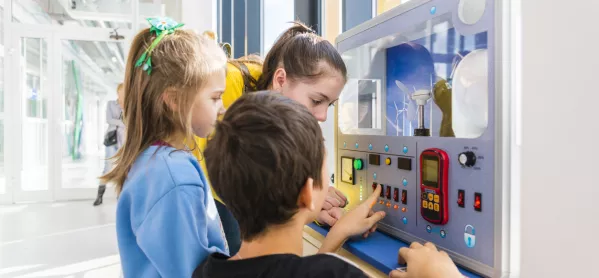- Home
- Research will assess if museum trips help poorer pupils
Research will assess if museum trips help poorer pupils

Researchers are to look into whether extracurricular activities such as museum trips and performing arts classes can narrow the disadvantage gap for pupils.
The Education Endowment Foundation (EEF) is funding a trial of a programme known as the Children’s University.
Nine and 10-year-olds in 150 primary schools across the UK will take part in activities outside the classroom as part of the scheme, including walking trails, gymnastics, sports, performing arts classes and trips to wildlife parks.
Related: The extracurricular pressure on teachers
Quick read: Sutton Trust calls for vouchers for extracurricular activities
Background: ‘Major’ research pledge on after-school activities
The trial aims to explore whether these activities have a positive impact on attainment.
In an earlier, smaller trial of Children’s University funded by the EEF, researchers found positive impacts on children’s key stage 2 maths and reading equivalent to two months’ additional progress.
They also found there were small improvements in children’s teamwork, social responsibility and aspirations.
The National Foundation for Educational Research (NFER) will independently evaluate whether the positive effects are replicated over a larger number of schools.
The EEF hopes the evidence from the trial will be used by headteachers when deciding how to allocate resources to enrichment activities in their school.
Sir Kevan Collins, chief executive of the EEF, said: “All young people deserve the chance to access a well-rounded and culturally rich education. Yet we know that those from disadvantaged backgrounds are less likely to take part in the sort of activities that Children’s University provides.”
As part of the trial, each pupil will receive a “Passport to Learning” to record the activities they take part in. They will be able to choose from a range of activities, receiving a stamp in their passport when they have completed different tasks.
But Mary Bousted, joint general secretary of the National Education Union, said schools lacked the money to pay for more enrichment activities.
She said: “It is certainly the case that enrichment activities such as museum, art gallery trips, visits to parks and leisure centres, can be of great benefit to children and young people. Schools already know this and carry out such activities on a regular basis.
“The difference in the past few years is that there is simply not the money. School budgets barely stretch to the basics, such as building repairs or pens and paper, teachers and support staff. As a consequence, extra-curricular activities have had to fall by the wayside. What schools need most is to be adequately funded. That is for government to ensure, not for head teachers to try and conjure up money out of nowhere.”
SEND projects
Alongside the Children’s University, the EEF is also launching two schemes focused on improving outcomes for children with special educational needs and disabilities (SEND).
One, known as the SEND review, aims to improve SEND provision in mainstream secondary schools by helping schools to evaluate the effectiveness of their approach. The project will be delivered by the charity Nasen and around 150 mainstream secondary schools will take part.
The second SEND programme, Headsprout Reading in Special Schools, aims to improve the reading skills of young pupils with SEND through an adaptive computer programme. Pupils will work through tasks in cartoon-based virtual worlds resembling video games.
Bangor University has already piloted the programme in special schools, and more than 100 special school have now been invited to take part in a large-scale trial of the programme for primary-aged children with SEND.
Sir Kevan said: “It is great that we’re able to announce our first two trials of programmes focused on improving outcomes for pupils with special educational needs. The attainment gap is widest for this group and the evidence we generate from these trials will provide much-needed evidence of how best to support them.”
But Dr Bousted said: “The SEND Review plans ignore the fact that schools are struggling to manage basic provision for pupils with SEND not because their provision is not effective but because of the funding crisis created by the government. Challenging schools to do more with even less resource is not the answer.”
Keep reading for just £1 per month
You've reached your limit of free articles this month. Subscribe for £1 per month for three months and get:
- Unlimited access to all Tes magazine content
- Exclusive subscriber-only stories
- Award-winning email newsletters



